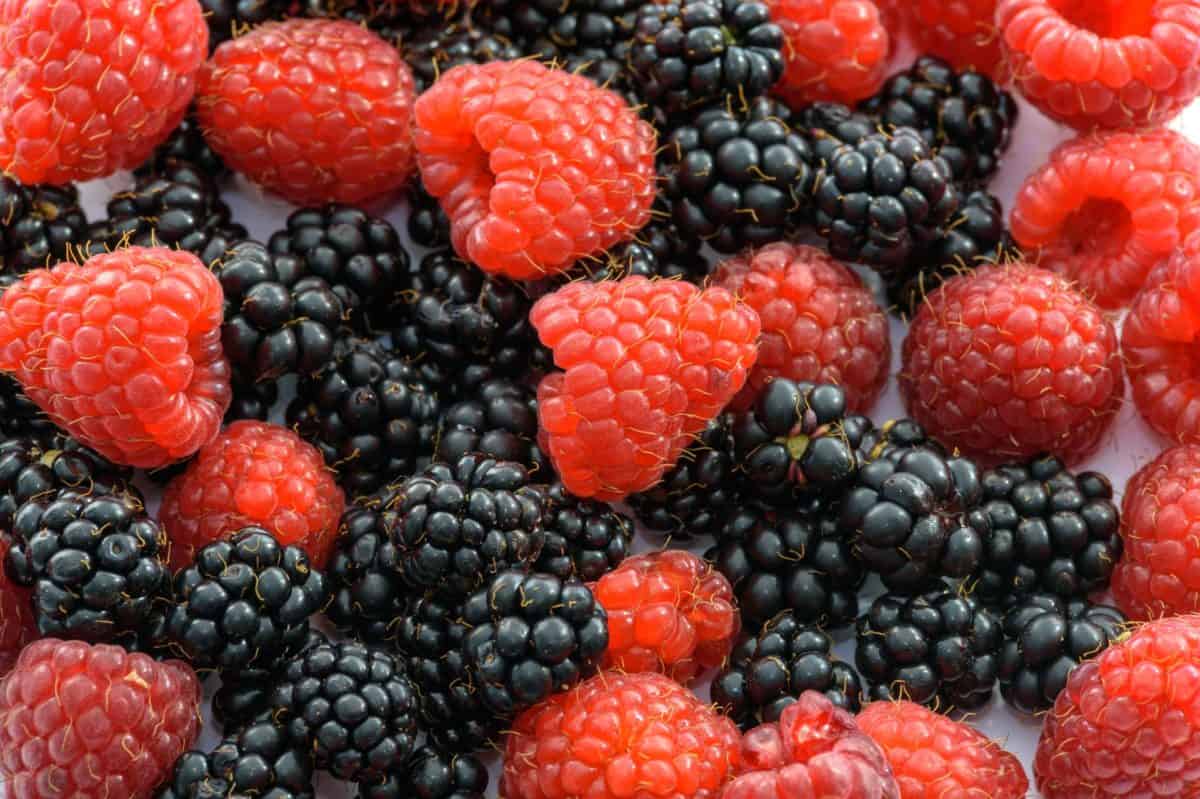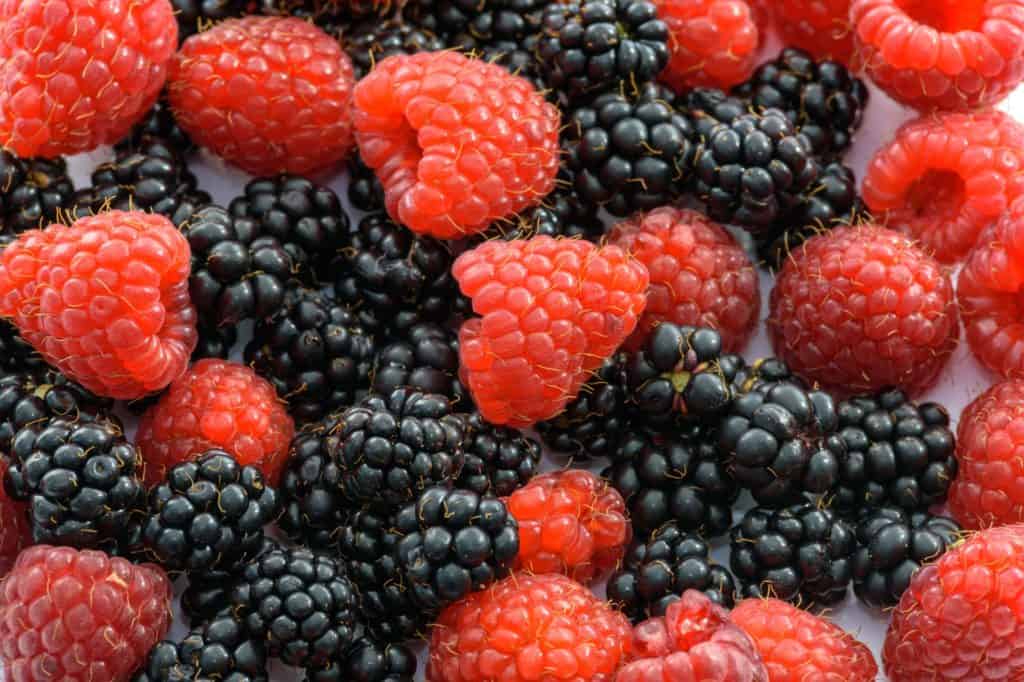
The best Taekwondo students invest in training both physical and mental. Like any martial art, these two components go hand in hand like a side kick and turning kick. If you only focus on the mental and physical you can become a great martial artist – no doubt. However, Taekwondo athletes who learn to eat well and also train their mind and bodies are the people you find at the top their sport and winning Taekwondo tournaments.
What is the best diet for Taekwondo? It should include plenty of carbs as well as a mixture of fruits and vegetables with plenty of protein. Its also very important to drink lots of water to keep well hydrated.
In order to learn more about how eating the right foods and drinking lots of water can contribute to better training in Taekwondo, keep reading!
Importance of Diet in TaeKwonDo
Taekwondo is a branch of the martial arts that comes from Korea. Some of its prominent features include head-height kicks, spinning and jumping kicks, and fast kicking techniques.
It is suitable for all ages and has multiple health benefits that include increased physical strength, enhanced stamina, developing a disciplined personality, and practicing self-defense techniques. However, Taekwondo requires rigorous training, which requires that you make changes to your routine and diet.
For optimal Taekwondo training, it’s important to attain a specific level of fitness. Athletes training for Taekwondo competitions requires a high level of aerobic fitness to help them maintain their performance and recover after matches. To achieve ideal fitness levels, Taekwondo trainers have to take special care of their diet.
Maintaining Weight for Taekwondo
Taekwondo is weight-category sport. All athletes are required to weigh-in the day before the competition. To compete, athletes must meet certain weight requirements according to their age, sex, and level of competence.
Like other weight-category sports, athletes compete to aim at the higher end of the weight range category in Taekwondo. To achieve this, the athletes train for body weight a little higher than the competition day weight. The athletes need to decrease their weight for a short period before the competition to ‘make weight.’
Athletes should select a weight category on the basis of their weight, body type, growth, and competition goal. The weight category should not be higher than what can affect their health. They should maintain a hydrated bodyweight no greater than 3-5% of the competition weight. As a result, they can minimize the need for extreme weight loss practices.
Training Diet for Taekwondo
Taekwondo trainees have adequately fuel up and rehydrate to reach their maximum nutrition potential. To reach the required weight, trainees may use inappropriate methods like excessive exercise, high food and fluid restriction, use of a sauna for excessive sweating, laxatives, and diuretics. These techniques may help to achieve short term weight goals but can impair performance and have negative health impacts.
To safely achieve the desired weight, it is necessary to match your energy intake with the training load. Eating the right type and amount of food is crucial to maintaining competition weight. Here are the key factors of a taekwondo athlete’s diet.
Eat Plenty of Carbs
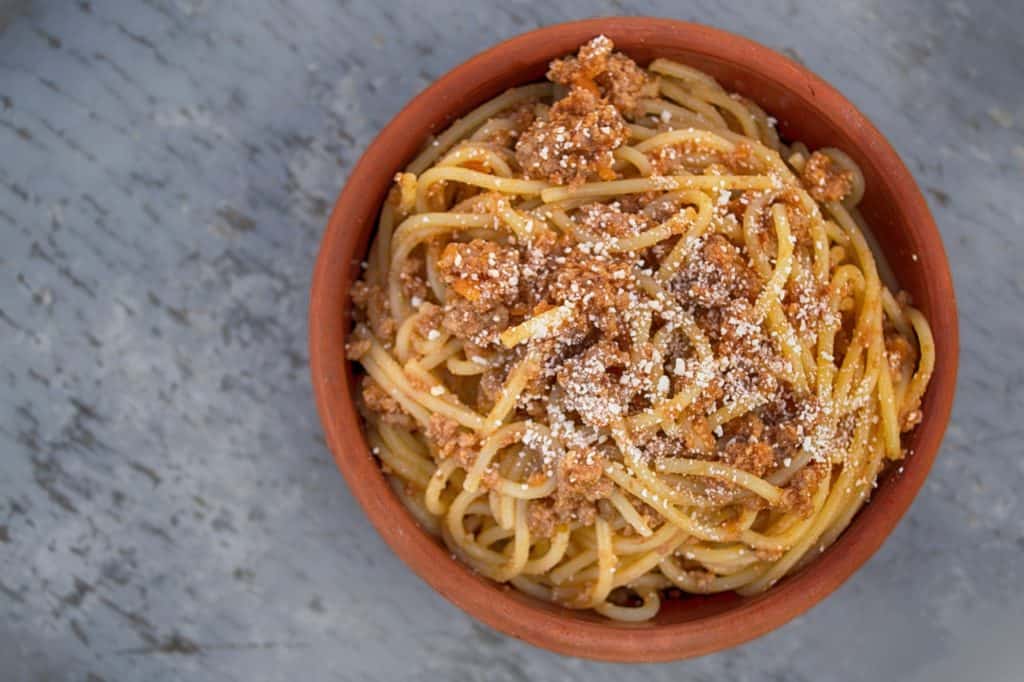
Taekwondo trainees need more carbohydrates in their diet than people normally do. As carbohydrates are a quick source of energy, trainees need plenty of them for all their cardiovascular activities.
They should be consuming good sources of carbohydrates such as oatmeal, brown rice, beans, or any unprocessed carbs. Taekwondo trainers always recommend their trainees to consume more carbohydrates before the training, as well as after. This way, trainees have more energy to boost their workout.
Have a Good Amount of Protein
Protein is a key part of any trainer’s diet. Similarly, protein plays a big role in taekwondo training. After every training session, athletes need proper nutrition to help their bodies recover. Consuming protein after taekwondo class or practices is very necessary. It not only helps with muscle recovery but also works to build lean muscle.
Taekwondo instructors commonly recommend having chicken, fish, beef, or pork in the diet. Fish, eggs, and legumes should be an important part of one’s diet if they regularly train.
Taekwondo is the best practice to build lean muscles, especially on the legs and core. Maintenance and recovery of these muscles are very important to increase speed and performance. Consuming protein is crucial in developing these muscles.
Stock up on Fruits and Vegetables
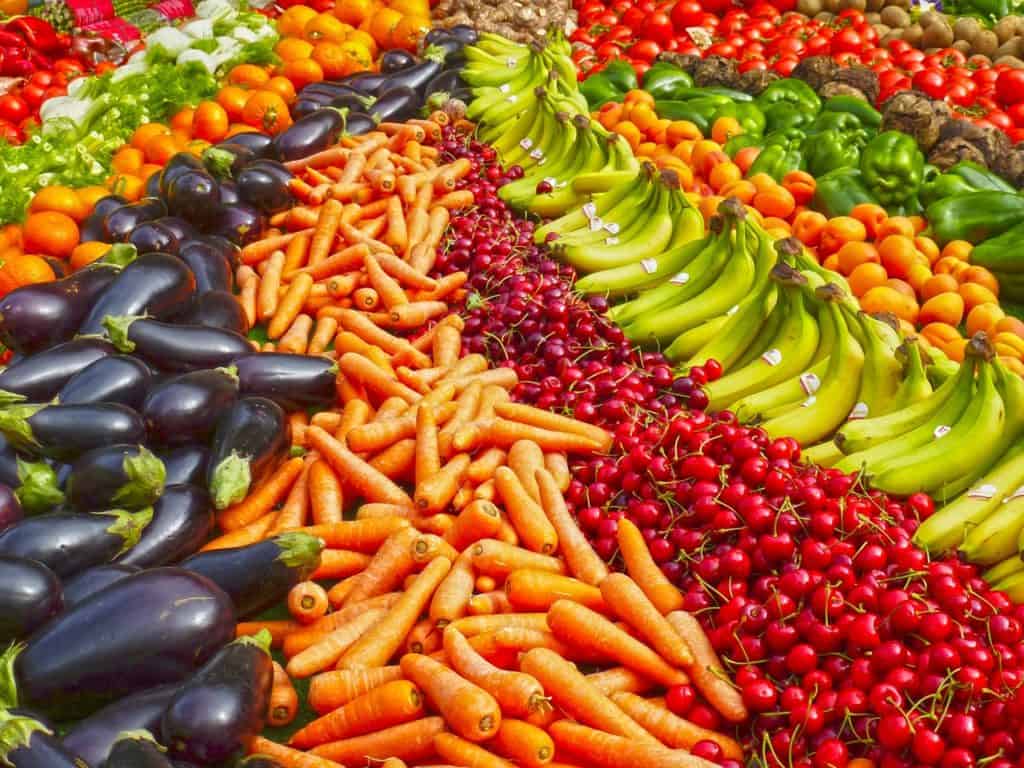
As a Taekwondo student, you must include fruits and vegetables in your diet. They are rich in vitamins, minerals, and antioxidants. Regular intake of fruits and vegetables increases your energy levels, boosts the immune system, and regulates the metabolism well.
You cannot have effective taekwondo training without a proper fruit and vegetable diet. Eating fresh fruits and vegetables makes you feel lighter and cleaner, which can improve performance.
Many Taekwondo instructors give their students a useful tip to get a quick fix of fruits and vegetables before their practice. They advise their students to blend selected fruits and vegetables into a smoothie. A mixed berry smoothie with spinach and nuts is not just healthy but tastes great too.
Blending selected fruits and vegetables is very convenient for Taekwondo athletes. Although it does not substitute eating whole fruits and vegetables but gives a quick boost of nutrients before the practice.
Hydration for Taekwondo

There is no denying that the human body requires more hydration when undergoing strenuous exercise. The same applies to taekwondo training. The exercises involved in practice and the heavy taekwondo uniform causes a lot of sweating.
When you lose fluids through sweating, you lose essential minerals and electrolytes. These minerals are responsible for important body functions like muscle contractions and nerve impulses. Severe dehydration affects not only your performance but can cause muscle degeneration and renal failure in the long term.
When you have to practice rigorous punches and kicks, you need to replenish your body with water. It is important to drink water before you work out and every 10 to 15 minutes during practice.
It is normal for Taekwondo athletes to become conscious of their weight. Some trainers will end up replacing sweat losses from training as this could show up as increased body weight. This is an unhealthy practice. Fluid weight is easy to manipulate but can lead to loss of fluid from the body.
How to Stay hydrated?
Taekwondo athletes should drink fluids with all their meals and snacks. Sports drinks have a large amount of sugar, so they are not a good substitute for water.
Water is the best source of fluid to keep yourself hydrated. You can drink smoothies or fresh juice in addition to fuel yourself up. The best way to stay hydrated is to drink at least 10 to 12 glasses of water every day.
Signs of a Well-Hydrated body
Extreme thirst is the most common symptom of borderline dehydration. Dehydration also causes fatigue, dizziness, cramping, dark urination, and in some instances, confusion.
A good sign of hydration is to aim for pale yellow urine throughout the day. You can pinch the back of your hand, and see if the skin goes back to normal. If it does, then you are well-hydrated.
Eating and Drinking for Competition
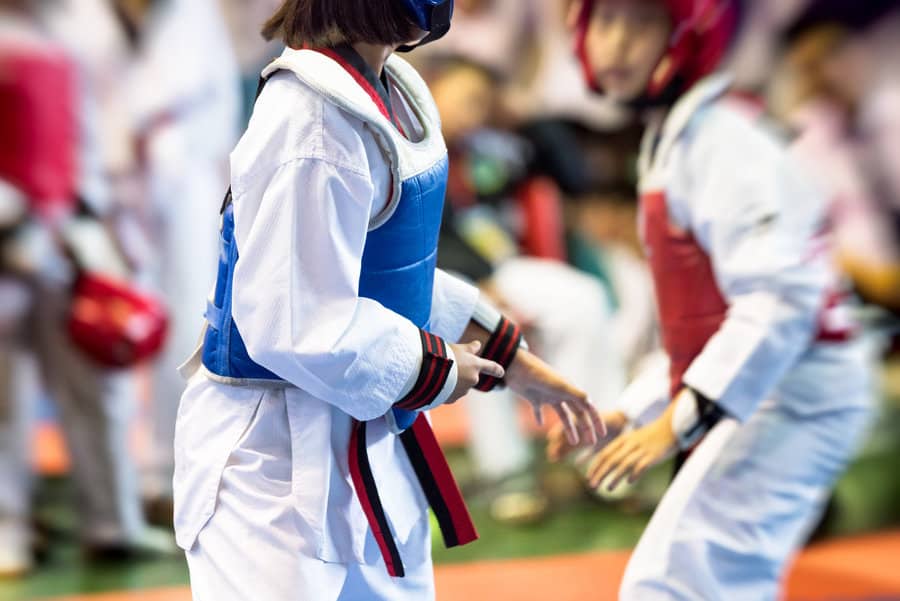
On the day of competition, athletes should have a high-carb breakfast, three to four hours prior to the first. Setting the time for meals around the competition can be tricky as the time of bouts can be unpredictable.
Athletes should have healthy and filling snacks at hand to eat throughout the day. This is very important to do when the athlete is competing in several rounds and gets very little opportunity to eat.
Taekwondo athletes should have portable, convenient, and easy to digest snacks such as fruit, oatmeal bars, muesli bars, dried fruit, crackers, crispbread, yogurt, or jam sandwiches. Nervous athletes who find it difficult to eat anything should rely on liquid-based snacks like smoothies.
Recovery
To recover quickly after training or competition, it is necessary to have a proper and filling meal or snack. A Taekwondo athlete should take foods containing carbs, (to replace muscle glycogen and restore blood glucose level), proteins (for muscle repair), and fluids (to compensate for sweat loss).
Most of the time, it is not possible to get a proper meal right after practice or competition. In such cases, you must eat a snack soon to kick-start the recovery process. Recovery snacks include fruit, milkshakes, yogurt, cereal bar, fruit, and chicken, beef, or ham sandwiches.
Taekwondo Diet for Children
The main dietary guidelines for Taekwondo athletes are more or less the same for all ages. Adults and children, when training for Taekwondo, should have plenty of good carbs and rich sources of proteins in their diet. Taekwondo athletes, regardless of their ages, need to drink plenty of water to stay hydrated.
When it comes to setting a diet plan for an athletic kid, you have to be very careful. The requirements of competitive weight should not affect their growth. They should not be allowed to quickly lose or gain weight to reach the competition weight.
If the instructor asks your kid to gain or lose their weight for taekwondo, parents should get in touch with a qualified dietitian. Also, make sure that the children practicing Taekwondo are getting an ample amount of carbs. They need carbs for rigorous activities and maintain their cognitive skills to perform well at studies.
Final Thoughts
Apart from proper training, eating well is very important for Taekwondo athletes. The diet plays a major role in speed, performance, recovery after practice, and in achieving the competitive weight.
Taekwondo instructors and parents should take extra care of the diet of children who are practicing and competing. Their diet and physical activity should not interfere with their growth.

